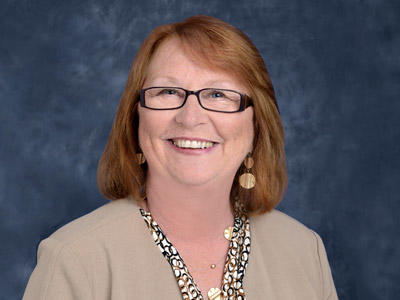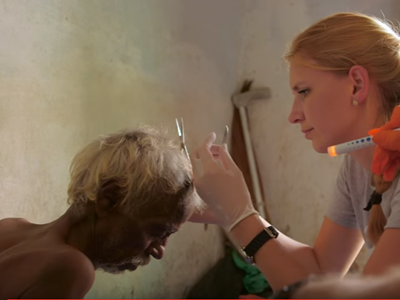Featured
Tags
Share
- Home / Blog / Faculty and Staff / HIV/AIDS Awareness Day: A Q&A with Cleveland President Adele Webb
HIV/AIDS Awareness Day: A Q&A with Cleveland President Adele Webb

March 10 is the 10th observance of National Women and Girls HIV/AIDS Awareness Day, an annual, nationwide observance that sheds light on the impact HIV/AIDS has on women and girls. Each year throughout the month of March, federal, national and community organizations come together to offer support and hope, reduce stigma, share information, and empower women and girls to learn the importance of HIV/AIDS prevention, care, and treatment. [i]
Adele Webb, president of Chamberlain’s Cleveland campus, is a clinical expert in HIV/AIDS who hopes to help current and future nurses, and the general public alike, gain a better understanding of National Women and Girls HIV/AIDS Awareness Day and learn more about HIV/AIDS.
Why are National Women and Girls HIV/AIDS Awareness Day and other HIV/AIDS awareness days significant?
National awareness days are vital in the continued education of the public on world health issues. With awareness comes understanding and knowledge. We know what causes the HIV virus and we know how to prevent it. As healthcare professionals, we know the right questions to ask in order to diagnose and provide a care plan as soon as possible. Disease numbers increase when the public is uninformed or misinformed.
How did you become interested in HIV/AIDS research and patient care?
During the early days of the AIDS epidemic in the 1980s, I was working as a pediatric emergency room nurse in Akron, Ohio, when an infected child came into the emergency room. The other nurses responded with fear, judgment and prejudice. As a caregiver, I do not believe you should judge people. How they got into their situation should not matter. The fact is, every patient needs someone to care for them. I realized I could be that person. As nurses we have a responsibility to provide care for the whole person, to be compassionate, to engage with our patients and to offer them the full support they need. Over the years, my interest in HIV/AIDS has led me around the globe to Swaziland, South Africa, Lesotho and Botswana in Africa, educating nurses about HIV/AIDS and caring for infected patients.
What are the most important facts about HIV/AIDS that the general public need to know?
Number one: HIV is 100 percent preventable[ii] when the correct measures of precaution are taken. It is also very important to know the difference between HIV and AIDS. HIV (human immunodeficiency virus) is an infection that results in the progressive deterioration of the immune system, breaking down the body's ability to fend off some infections and other diseases. AIDS (acquired immune deficiency syndrome) refers to the most advanced stages of HIV infection, defined by the occurrence of any of more than 20 opportunistic infections or related cancers.[iii] According to the World Health Organization, 35 million people are living with HIV worldwide.[iv]
How have you seen the public’s perception of HIV/AIDS change over the years?
I have seen public perception go from extreme fear to apathy. No one talks about HIV anymore and many people incorrectly believe there is a cure. Currently, there is no cure for HIV/AIDS. When people are apathetic they do not protect themselves or others. It is our job as nurse educators and healthcare professionals to educate and continue to educate the public with correct information.
Why is it important for nursing students to engage and become educated in world health issues?
World health issues are all around us. Think about the Ebola virus. Although the outbreak began in Western Africa, it ended up coming right here to Cleveland. When nursing students engage in global healthcare and become educated in world health issues, it elevates their nursing knowledge. They become empowered to transform healthcare worldwide and handle whatever comes their way.
What is your advice to nursing students about providing proper care to HIV/AIDS patients?
HIV/AIDS is still a critical issue in our world today. Nurses must know how to recognize the signs and symptoms and know what questions to ask their patient. Too often, patients go undiagnosed because they were not asked the right questions. Our healthcare knowledge is always evolving, and there will always be new information about the disease. Nurses must continue to education themselves on the facts. I recommend current and future nurses turn to resources such as the Center for Disease Control and Prevention, World Health Organization and International Council for Nurses for the latest updates.
Acknowledging national health awareness days is vital to continued public education on significant medical issues that affect us in the U.S., as well as communities around the world. It is the responsibility of healthcare professionals to continue learning so we can educate ourselves. To learn more about national health awareness days, visit the Center for Disease Control and Prevention.
[i] Womenshealth.gov, About National Women and Girls HIV/AIDS Awareness Day. Web, 2015. <http://www.womenshealth.gov/nwghaad/about/index.html>.
[ii] Fraser Heath, HIV and AIDS. Web, 2011. < http://www.fraserhealth.ca/your_health/sexual_health/hiv_and_aids/hiv_and_aids>.
[iii] World Health Organization, 10 Facts on HIV/AIDS. Web, 2015. <http://www.who.int/features/factfiles/hiv/facts/en/>.
[iv] World Health Organization, 10 Facts on HIV/AIDS. Web, 2013. <http://www.who.int/features/factfiles/hiv/facts/en/index2.html>.
By Natalie Sobolewski
More from Faculty and Staff
Request More Information
To receive the Chamberlain University Program Guide, including associated career paths, please select a program of study.







